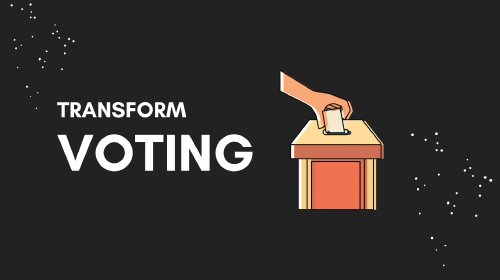Mobile Wallets: A Detailed Review
Salomon Kisters
Jun 13, 2023This post may contain affiliate links. If you use these links to buy something we may earn a commission. Thanks!
In this digital age, it’s incredibly convenient to have everything on your phone - including your payment options. That’s where mobile wallets come in. With so many options currently available, it can be overwhelming to choose which one to use.
Do you go with the one already built into your phone’s operating system or try out a third-party app? And what about security concerns?
That’s why we’re here to give you a detailed review of the most popular mobile wallets on the market. We’ll cover everything from ease of use to security features to help you make an informed decision on which one is right for you.
So, sit back and let’s dive into the world of mobile wallets.
Security Measures in Mobile Wallets
When it comes to storing your payment information on your phone, security is understandably a top concern. Thankfully, mobile wallets are equipped with a variety of measures to ensure the safety of your information and prevent unauthorized access.
Firstly, most mobile wallets require a passcode or biometric authentication (such as fingerprint or facial recognition) to access your payment information and make transactions. This adds an extra layer of security and ensures that only you have access to your account.
Additionally, many mobile wallets use tokenization, a process that replaces your actual payment information with a unique token. This makes it nearly impossible for hackers to access your actual payment information, as the token cannot be used to make purchases on its own.
Furthermore, mobile wallets often have the ability to remotely wipe your payment information if your phone is lost or stolen. This means that even if someone were to gain physical access to your phone, they would not be able to access your payment information.
No security measure is foolproof, but mobile wallets are equipped with multiple layers of security to protect your payment information. As long as you take basic precautions such as setting a strong passcode and not sharing your account information, using a mobile wallet can be a safe and convenient way to pay.
Popular Mobile Wallets in Use
Mobile wallets have become increasingly popular over the years, with a wide variety of options now available for consumers. Here are just a few of the most widely used mobile wallet platforms:
1. Apple Pay
Apple Pay is perhaps the most well-known mobile wallet on the market. It’s available on all Apple devices and allows users to make purchases through their phone or other Apple device by simply holding it up to a compatible terminal. Apple Pay also offers strong security features such as biometric authentication and tokenization.
2. Google Pay
Google Pay (formerly known as Android Pay) is another popular mobile wallet option that’s available on Android devices. It works similarly to Apple Pay, allowing users to make purchases at compatible terminals by holding their phone up to the device. Google Pay also offers a range of security features, including passcode protection and the ability to remotely lock or erase your device if it’s lost or stolen.
3. Samsung Pay
Samsung Pay is specifically designed for Samsung devices and offers a different approach to mobile payments. In addition to allowing users to make payments through NFC (like Apple Pay and Google Pay), Samsung Pay also supports Magnetic Secure Transmission (MST) technology, allowing users to make payments at nearly any terminal. Samsung Pay also offers biometric authentication and the ability to remotely wipe your payment information if needed.
4. PayPal
PayPal is a digital wallet that allows users to make payments using their PayPal account balance, linked bank account, or credit/debit card. It’s available on both iOS and Android devices and can be used to make purchases online or in person at compatible retailers. PayPal also offers strong security features, including two-factor authentication and the ability to dispute transactions if needed.
These are just a few of the many mobile wallet options available on the market today. Each platform has its own unique features and benefits, so it’s important to do your research and choose the one that best fits your needs.
Advantages and Disadvantages of Mobile Wallets
Mobile wallets have become increasingly popular due to their convenience and ease of use. However, like any technology, they also have their advantages and disadvantages.
Advantages
Convenience: One of the biggest advantages of mobile wallets is their convenience. With your payment information stored on your phone, you can make purchases quickly and easily from anywhere.
Enhanced Security: Another benefit of mobile wallets is the enhanced security they offer. Many mobile wallets use biometric authentication (such as a fingerprint or facial recognition) to confirm transactions, making them more secure than traditional credit cards.
Accessibility: Mobile wallets are accessible to anyone with a smartphone, making them a great option for people who may not have a bank account or credit card.
Loyalty Programs: Many mobile wallets offer loyalty programs, which can save users money on future purchases or offer reward points for every transaction.
Disadvantages
Limited Acceptance: While mobile wallets have become more common, not all retailers accept them as payment yet. This can be frustrating for users who want to use their mobile wallet for all their purchases.
Reliance on Technology: If your phone battery dies or you lose it, you may not be able to access your mobile wallet. This can be problematic if you need to make a purchase and don’t have any other payment options available.
Privacy Concerns: Mobile wallets require users to input their personal and financial information, which can be concerning from a privacy standpoint. If a mobile wallet platform is hacked or compromised, users’ sensitive information could be at risk.
User Error: Finally, using a mobile wallet requires users to be responsible and vigilant with their devices. If a user accidentally makes a purchase or sends money to the wrong recipient, it can be difficult and time-consuming to reverse the transaction.
Mobile wallets offer a convenient and secure way to make purchases. However, it’s important to weigh the advantages and disadvantages before deciding whether to use one as your primary payment method.
Set-Up and Use of Mobile Wallets
Setting up and using a mobile wallet is typically a simple process. Users download the mobile wallet app and input their personal and financial information. The app then securely stores this information for future transactions.
To use a mobile wallet, users simply need to open the app and select the payment method they want to use. Many mobile wallets offer several payment options, such as debit cards, credit cards, or bank transfers. Users can then complete the transaction by following the prompts within the app.
When using a mobile wallet, it’s important to ensure that your phone is password protected or using biometric authentication. This added security can help prevent unauthorized purchases or access to your sensitive information.
It’s also important to pay attention to the details of each transaction, such as the amount and recipient, to avoid making any user errors. In the event of an accidental purchase or transaction, it may take some time to reverse the transactions and recover any lost funds.
Future of Mobile Wallets and the Payment Industry
Mobile wallets have already made significant strides in the payment industry, and this trend is expected to continue in the future. The convenience and ease of use offered by mobile wallets have made them a popular payment option for consumers around the world, and this popularity is only set to grow.
One significant development in the future of mobile wallets is the integration of new technologies such as blockchain. By combining blockchain technology with mobile wallets, users will be able to securely store and transfer cryptocurrencies directly from their mobile devices. This could revolutionize the way we use and think about money.
Another area of growth for mobile wallets lies in their integration with other payment systems, such as contactless and biometric payments. As more businesses adopt these payment methods, mobile wallets will become increasingly versatile and widely used.
Finally, mobile wallets are expected to become more personalized, offering users customized offers and promotions based on their purchasing history. Through these personalized experiences, mobile wallets can provide additional value to consumers and continue to grow in popularity.
In conclusion, the future of mobile wallets is set to be both exciting and dynamic. The integration of new technologies and increased personalization will make mobile wallets even more essential to our daily lives and the payment industry as a whole.
Stay informed with the latest insights in Crypto, Blockchain, and Cyber-Security! Subscribe to our newsletter now to receive exclusive updates, expert analyses, and current developments directly to your inbox. Don't miss the opportunity to expand your knowledge and stay up-to-date.
Love what you're reading? Subscribe for top stories in Crypto, Blockchain, and Cyber-Security. Stay informed with exclusive updates.
Please note that the Content may have been generated with the Help of AI. The editorial content of OriginStamp AG does not constitute a recommendation for investment or purchase advice. In principle, an investment can also lead to a total loss. Therefore, please seek advice before making an investment decision.

What is a Social Recovery Wallet?
In this article, we're going to dive into the benefits and challenges social recovery wallets present, and see how they're changing the world of digital asset management.

Does Solana Solve the Blockchain Trilemma?
Solana is a blockchain platform that seeks to solve the blockchain trilemma. Does Solana offer a workable solution?

How Blockchain Voting Systems Transform the Way We Vote
Guaranteeing secure and transparent elections nowadays is almost impossible. Find out how Blockchain Voting Systems can make the voting process more transparent
Protect your documents
Your gateway to unforgeable data. Imprint the authenticity of your information with our blockchain timestamp